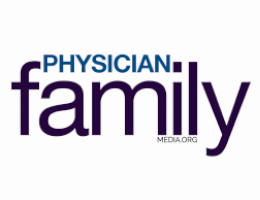By Monica Swanson
My husband and I are raising four sons. I am their homeschool teacher, though (thankfully) they do their work online and have excellent and qualified teachers for each subject. Our oldest son is a junior in high school now, and so begins the college prep process: ACTs and SATs, college visits, scholarship searches, and, someone hold me, it’s a lot.
And I thought the toddler years were hard.
Fortunately, our first born is a self-directed kid, and the process has proven to be more exciting than painful, though there is a bit of both in there. Mostly, I dread the day he leaves us to spread his wings, but that’s another topic for another article.
Today I want to talk about the conversation that has begun to come up with our firstborn, and will certainly come up again and again. The topic of a career choice, and of course, the question all of the people like to ask: “So, do you want to become a doctor like your dad?”
At this point, our oldest son hasn’t narrowed his focus yet. He likes a lot of things, and he’s good at a lot of things (a great problem, and another indication that he takes after his father). We have encouraged this first son to go to college with an undecided major and narrow his focus as he tries out a few different things (with high hopes that will happen in the first four years).
My husband has had some good talks with our boys about the field of medicine. They see his job as a hospitalist, and they also have had the chance to observe a few other medical specialists who we know or have in the family. As with every kind of work, my husband points out that there are pros and cons related to going into medicine. At this point, medicine is definitely a consideration for a few of our boys.
I asked Dave to share some thoughts on how he would counsel a student considering the medical field. This is what he said:
- Be realistic. Academically, not everyone is cut out for medicine. You’ll need to have a high GPA to stand out above other medical school candidates, and you’ll also need to score well on the MCAT test. Dave spent his first couple of years of college without a clear focus for his studies. He played soccer and was doing a lot of ministry and just being social. Dave remembers telling one of his mentors that he thought he might want to pursue medical school after college. The man asked him what his GPA was. “I have a three point,” Dave said. His mentor said, “A three point what?” Dave realized then that he needed to get busy if he wanted to stand out and get accepted into medical school.
- Count the cost. Dave remembers his brother-in-law, who is a family practice doctor, once telling him, “Don’t go into medicine unless you absolutely have to.” He wanted him to know that there are many other career choices out there that aren’t as hard as going through the process of becoming a doctor. Things that could likely fulfill you, but require less training, stress, and overall investment. He continued, “If you explore all of the options and you keep coming back to medicine as the only thing that would satisfy you, then go for it.”Dave says that medicine has changed a lot over time, and anyone considering going into medicine should do their research … know what they’re getting themselves into. Many doctors would say that the financial rewards have decreased, and the challenges of practicing medicine have increased. Being aware of the pros and cons will help you make a good choice for the future.
- Know your passions. Before making any big commitments, you should find out if medicine is what you are most passionate about. Look for volunteer opportunities that are closely related to the medical field you are interested in. Consider what you find most fulfilling. My husband spent a few years post-college doing youth ministry and coaching soccer. He enjoyed it but he also knew that he had a passion for life sciences. In college he had enjoyed biology but didn’t like being stuck in a lab. With all of this in mind, he found medicine to be where all of his passions merged. Indeed, he has found a perfect fit.
To an enthusiastic young student, Dave’s words might come across like a wet blanket. He tends to tell it like it is (which makes for a great hospitalist). However, he also is known for his great bedside manner, which hopefully comes across in his closing thoughts: “It is truly a privilege to be a doctor. To be involved in the process of taking care of people and helping them heal is a high calling. If you are realistically fit for medicine, have counted the costs, and find your greatest passion in doing medicine, then you will likely do great in medical training and have a very fulfilling medical career.”
I would love to hear from other physician families if you would add to that list, or have any other thoughts on the subject!
With Aloha,
Monica


